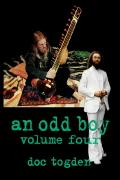 Kyil-khor is the living sense of being related with your environment – of being aware of the subtleties and nuances of your situation. There is a certain sense of the magical about your existence when the principle of kyil-khor starts to apply at the level of your senses. You begin to feel as if you’re actually alive! The tree we’re sitting under is performing photosynthesis at this moment! It has some sense of the earth. We’re here at this moment, being attentive to all this – existing in the presence of everything that’s happening. It has to do with climbing out of the cocoon of self-orientation.
Kyil-khor is the living sense of being related with your environment – of being aware of the subtleties and nuances of your situation. There is a certain sense of the magical about your existence when the principle of kyil-khor starts to apply at the level of your senses. You begin to feel as if you’re actually alive! The tree we’re sitting under is performing photosynthesis at this moment! It has some sense of the earth. We’re here at this moment, being attentive to all this – existing in the presence of everything that’s happening. It has to do with climbing out of the cocoon of self-orientation. With kyil-khor there is both the sense in which everything can be seen as the radiance of our own awareness; and, the sense in which we simply participate in the radiance of everything else.
p80, Wearing the Body of Visions, Ngakpa Chögyam, Aro Books, 1995, ISBN 1-898185-03-4





 “Basically I see Vajrayana as the essential nature of being an artist. Vajrayana explores the sense-fields as the ground of experience and perception.”
“Basically I see Vajrayana as the essential nature of being an artist. Vajrayana explores the sense-fields as the ground of experience and perception.”
 In terms of acclimatising to the undefined dimension of existence – it should be understood that: imagination relies on empty perception; paintings rely on empty planes; sculptures rely on empty space; music relies on silent time; and, literature relies on empty conceptuality. If the art of freedom is to be realised—if creative potential is to be discovered—reliance on the experience of intrinsic emptiness is the only precursor.
In terms of acclimatising to the undefined dimension of existence – it should be understood that: imagination relies on empty perception; paintings rely on empty planes; sculptures rely on empty space; music relies on silent time; and, literature relies on empty conceptuality. If the art of freedom is to be realised—if creative potential is to be discovered—reliance on the experience of intrinsic emptiness is the only precursor.



